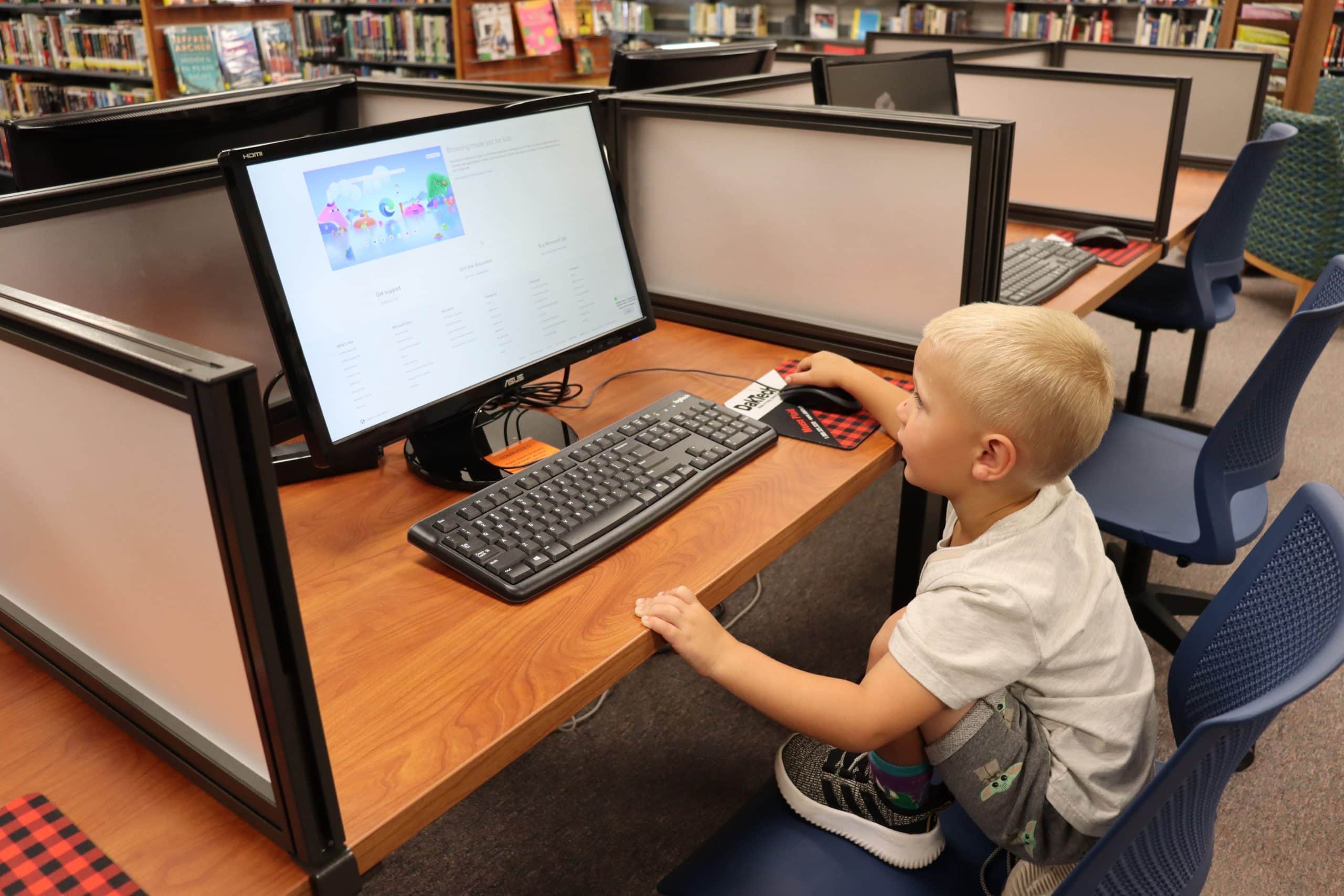What began as a casual conversation about the importance of libraries being able to provide their communities with reliable, high-speed internet access evolved into a major project to connect libraries across the state of Texas, spanning over 800 miles.
Texas’s research and education (R&E) network, Lonestar Education and Research Network (LEARN), in collaboration with the Texas State Library and Archives Commission (TSLAC), connected 10 libraries across rural Texas with up to one gigabit per second internet, providing them with 10 to 100 times faster internet service than they could previously access.
“Especially during COVID, we’ve seen how many people rely on the library for their internet, whether they’re in the building or sitting in the parking lot to connect to the Wi-Fi,” said Amy Schultz, chief relationship and engagement officer at LEARN. “This project allows us to provide a reliable, high-speed, low-latency network to libraries for the benefit of the patrons in their city, which is incredibly valuable.”
Targeting rural cities with a population of 10,000 or less, LEARN worked with former state librarian Mark Smith to reach out to libraries all across Texas. “We wanted to target rural libraries in small cities because we felt like the big cities in Texas have access to high-quality internet and a lot of different internet providers, whereas rural cities don’t have that or maybe only have one or two providers in the area,” Schultz explained.
Since most of the libraries had no previous experience with an R&E network, LEARN staff dedicated a significant amount of time to share who and what LEARN is and why connecting to an R&E network is beneficial. “I like to explain that what differentiates us is our people network – the community that we provide and the opportunity to be a part of a group of all the other libraries that are connected to LEARN,” Schultz added.

After identifying the 10 libraries across Texas, LEARN staff spent approximately 1,500 hours traveling to each library to install the specialized equipment they needed, taking special care to ensure the libraries were set up for long-term success. “We put a lot of work into making sure we’re picking the right equipment for them so that we can monitor and support them sufficiently, even from a distance,” Shultz explained.
With all the libraries set up and connected, the impact has been obvious and immediate.
“Before LEARN, we had been through several providers, each one gradually increasing our speed. Our last one provided 100 megabits, and we thought we had fast internet. But each time it rained, it seemed like we would lose our connection and would be dead in the water until the storm passed,” said Ashley Corns, librarian at the Grapeland Public Library. “I’m happy to report that last week we had a downpour and did not lose connectivity, which amazed us all. Our internet is so much faster than before! No more waiting for downloads or uploads – we just click and it seems like it is done in an instant.”

Corns added that LEARN’s reliable and fast connection has already made a difference in the community. “Grapeland is a small rural town and, if you don’t live in the city limits, your options for internet are limited to slow satellite internet. This situation limits people from being able to search the web or complete school projects. With our new internet, people are able to come to the library and search for what they need without spending all day waiting for a page to load. We also provide Wi-Fi that is available from our parking lot. So now, even when we are closed, we have patrons coming to use the internet.”
Even after the initial setups were completed at each library, the project’s work continued. LEARN’s Manager of Administration Membership and Outreach, Mary Goldie, hosted monthly meetings for the librarians to gather and share what they were doing with their connection and what their libraries were doing in their communities. Through the meetings and their connections, LEARN hopes to support the libraries in expanding community programming.

“We’re hoping this gives people the opportunity to think outside the box and try out new programming that can bring more people into the library,” Goldie shared. “We want the libraries to have that great connection but also feel like they’re part of a community and be able to get to know their colleagues and build on ideas with them as well.”
Libraries Connected Through the LEARN/TSLAC Project
West Texas
- Muleshoe Public Library – Muleshoe, Texas
- Friona Public Library – Friona, Texas
- Cochran County Love Memorial Library – Morton, Texas
East Texas

- Fairfield Public Library – Fairfield, Texas
- Upshur County Library – Gilmer, Texas
- Jacksonville Public Library – Jacksonville, Texas
- Allen Memorial Public Library – Hawkins, Texas
- Grapeland Public Library – Grapeland, Texas
- Lee Public Library – Gladewater, Texas
South Texas
- Alexander Memorial Library – Cotulla, Texas
About LEARN

LEARN (The Lonestar Education And Research Network) is a consortium of 43 organizations throughout Texas that includes public and private institutions of higher education, community colleges, libraries, the National Oceanic and Atmospheric Administration (NOAA), Texas State Library and Archive Commission (TSLAC), and Texas Education Telecommunications Network (TETN) and K-12 public schools. The consortium, organized by higher education leaders as a 501(c)(3) nonprofit organization, connects its members and over 300 affiliated organizations through high-performance optical and IP network services to support their research, education, healthcare, and public service missions. LEARN is also a leading member of the national community of advanced research networks, providing Texas connectivity to national and international research and education networks, enabling cutting-edge research that is increasingly dependent upon sharing large volumes of data.
Network Statistics:
- On the web: https://www.tx-learn.org/
- Twitter: @tx_learn
- Community Anchor Program Member since: 2011
Story by Therese Perlowski, CAP Program Manager







